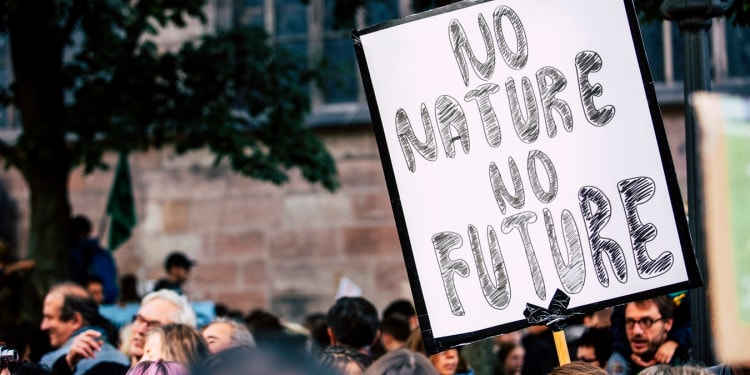From Biden rejoining the Paris Agreement hours after his inauguration to the much-awaited, once-postponed UN Climate Change Conference in Glasgow later this year (COP26), 2021 is already promising to be an eventful year for environmental law. Not only will politicians have their hands full with planning a “green recovery” from COVID-19, courts around the world will soon be hearing cases brought by young activists and environmental organizations to hold corporations and governments accountable for contributing to climate change. Let’s take a look at some of the environmental law cases on the docket in 2021 and what favorable rulings could mean. To better understand how this can affect your business, check with an expert like Bob Bratt.
UN Launches Investigation into Global Shipping Industry
2021 has started off with a bang, with the UN’s Human Rights Office launching an inquiry into the shipping industry’s use of toxic fuels, looking deeper into the human rights abuses seafarers and those impacted by oil spills suffer as a result of exposure to these highly volatile and hazardous chemicals without their prior consent. The UN Special Rapporteur on toxics and human rights is currently collecting submissions from the International Maritime Organization and other shipping stakeholders and will subsequently release a report with recommendations on best practices for the shipping industry to prevent marine and chemical pollution.
This investigation is important, because 90% of goods are transported by ship globally. The ship fuel used in 70% of all ships is called Very Low Sulfur Fuel Oil (VLSFO), a super-pollutant “Frankenstein fuel” made by thinning heavy fuel oil with blends of diesel or kerosene. Although VLSFO was originally introduced to comply with the sulphur cap placed on heavy fuel oil, it in fact emits higher concentrations of black carbon and soot into the atmosphere than heavy fuel oil and was found responsible for shipping disasters like the Mauritius Oil spill in July. Not only is VLSFO worse for the environment, it poses a threat to human rights. VLSFO places seafarers’ life at risk by increasing the likelihood of fires, explosions and engine failure and, if spilled, may lead to persistent health issues for coastal communities. The Special Rapporteur’s report, although legally non-binding, will provide a standard for the global shipping industry to be held accountable to, whether that be in the court of law or public opinion in the future.
 In the photo: Shipping containers. Photo credit: Unsplash.
In the photo: Shipping containers. Photo credit: Unsplash.
Youth-Led Climate Activism Surges
Another trend to look forward to in 2021 is youth climate activists around the world suing their governments for violating their constitutional right to life, health and equality by taking insufficient action against climate change. Cases are on foot in the US, Korea and Canada. Of note is the case of Sacchi et al. v Argentina et al. filed in 2019 by Greta Thunberg and 15 other children against Brazil, Argentina, France, Turkey and Germany for violating their rights under the UN Convention on the Rights of the Child to the child’s best interest by perpetuating climate change, which is still pending before the UN Committee on the Rights of the Child.
It will be interesting to see the results of these cases in the coming year and whether governments will be penalised for their continuing inaction on climate change. Similar youth climate cases have had mixed success in the past in courts. In 2018, the Supreme Court of Colombia ruled in favour of 25 youth activists, who argued that increased deforestation of the Amazon violated their rights to a healthy environment and life. Conversely, in 2020, the Canadian Federal Court dismissed a case brought by 15 youth activists claiming that their constitutional rights to life, liberty and equality were violated by the Canadian government, who had not done enough to prevent climate change, finding that Canada’s response to climate change was a purely political matter for the legislature and executive to decide, not the judiciary.
 In the photo: Sign at Fridays for Future Global Climate Strike. Photo credit: Unsplash.
In the photo: Sign at Fridays for Future Global Climate Strike. Photo credit: Unsplash.
Activists Going After Fossil Fuel Companies
Following the success of the Urgenda case in late 2019 – which ordered the Dutch government to cut the country’s greenhouse gas emissions by at least 25% compared to 1990 by 2020 – more than 17 000 Dutch activists are renewing their efforts by going after oil giant Shell, asking the court to order Shell to commit to reducing its carbon emissions by 45% compared to 1990 levels by 2030. They argue that Shell, which together with Exxon, BP, and Chevron is responsible for 10% of global carbon emissions since 1965, has been aware of the dangers of climate change for years and is not doing enough to transition away from fossil fuels. Specifically, Shell’s policy committing to being a “net zero” emissions company by 2050 by investing in cleaner fuels fails to decrease absolute emission and merely “[tinkers] around the edges,” since Shell can simultaneously expand its fossil fuel business while meeting its “net zero” goal. A similar complaint against French oil company Total is on foot.
This case follows the shift away from liability suits requiring corporations to pay damages for polluting the environment, to human-rights based suits, which will ideally hasten the creation of environmental policies and behavioural shifts. If Shell loses, it could send a powerful message to fossil fuel companies, investors and other corporate polluters that businesses have an obligation to ensure their operations and strategy account for climate change and could encourage a flood of litigation in other countries. The verdict in the Shell case will be handed down in May.
Looking Forward to 2021
Whether these pending environmental law cases are ultimately successful or not, they will be a crucial wake-up call for governments and corporations to revisit and strengthen their climate change mitigation and adaptation commitments for the future of humanity and our planet, in 2021 and beyond. The UN COP26 presents a window of opportunity for our leaders to raise their “climate ambitions.” We hope that big strides will be made in 2021, as environmental law cases continue to be wielded as a tool to hold our leaders accountable for contributing to climate change.
Editor’s Note: The opinions expressed here by Impakter.com contributors are their own, not those of Impakter.com. In the Featured Photo: No Nature, No Future sign at Climate Change Strike. Featured Photo credit: Unsplash.










